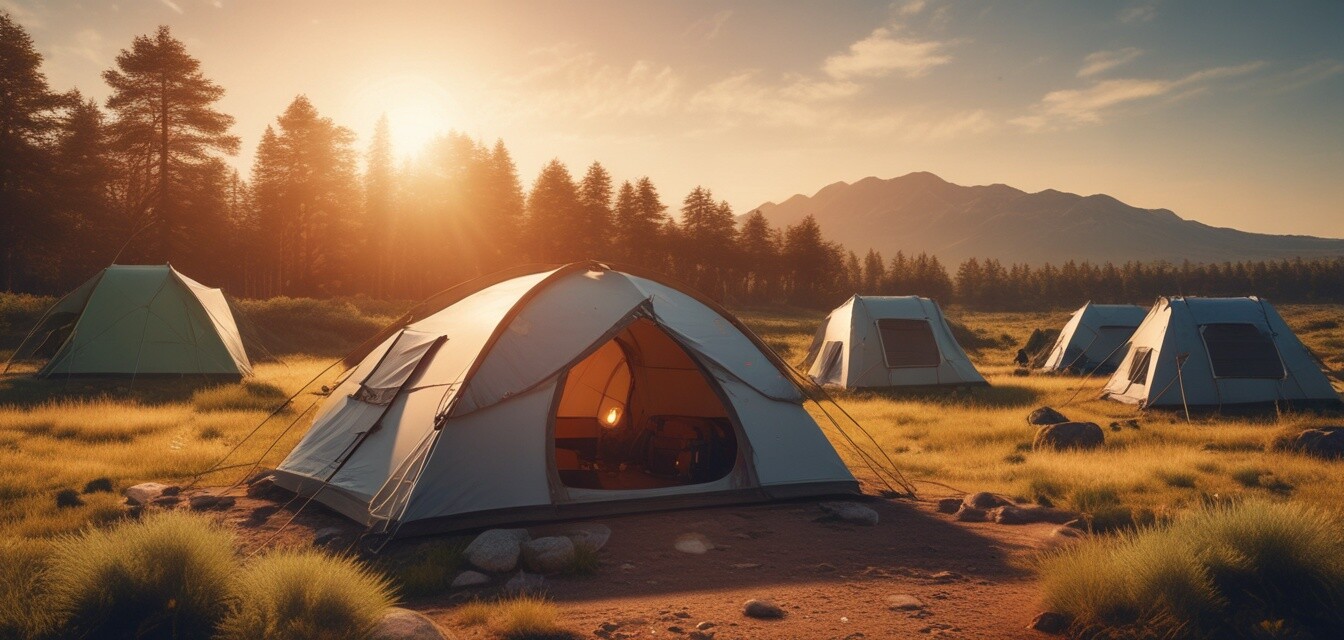
Using Solar Power for Responsible Camping
Key Takeaways
- Utilize solar-powered gear to minimize environmental impact.
- Always position solar panels for optimal sunlight exposure.
- Practice Leave No Trace principles when camping.
- Stay informed about local wildlife and vegetation to respect habitats.
- Pack efficiently to reduce footprints and improve energy needs.
Camping is a wonderful way to escape the hustle and bustle of everyday life, and using solar power can enhance your experience in a responsible way. Solar energy allows you to enjoy the great outdoors while minimizing your impact on nature. In this article, we’ll explore guidelines and tips to use solar gear responsibly, ensuring that your camping adventures are sustainable and eco-friendly.
Why Choose Solar Power for Camping?
Solar power offers numerous benefits for campers, including:
- Renewable energy source: Solar power is inexhaustible and helps reduce reliance on fossil fuels.
- Portability: Many solar-powered devices are lightweight and easy to carry.
- Energy independence: You can generate your own electricity while enjoying nature.
- Quiet operation: Enjoy the serenity of the outdoors without the noise of gas generators.
Essential Solar Gear for Camping
Before heading out, consider equipping yourself with the following solar gear:
| Solar Gear | Purpose |
|---|---|
| Solar Panels | Charge batteries or power devices during the day. |
| Solar Camping Tents | Integrated solar panels for generating energy directly at your camping site. |
| Solar Lanterns & Lights | Provide illumination at night without using batteries. |
| Solar Cookers | Cook meals using solar energy, minimizing firewood consumption. |
Guidelines for Responsible Use of Solar Gear
Using solar power responsibly while camping involves more than just charging your devices. Here are some practical tips:
1. Optimize Solar Panel Placement
Position your solar panels to capture the maximum amount of sunlight. Here are some best practices:
- Avoid shaded areas — place panels in direct sunlight.
- Adjust the angle throughout the day for better exposure.
2. Follow Leave No Trace Principles
To minimize environmental impact, implement the 7 Leave No Trace principles while camping:
- Plan ahead and prepare.
- Travel and camp on durable surfaces.
- Dispose of waste properly.
- Leave what you find.
- Reduce campfire impact.
- Respect wildlife.
- Be considerate of other visitors.
3. Understand Local Ecosystems
Before setting up camp, research local flora and fauna:
- Learn about local wildlife, including potential hazards.
- Identify native plants and trees and respect their habitats.
4. Pack Efficiently
Consider what you truly need to reduce your ecological footprint:
- Group gear among friends to minimize weight.
- Choose multi-functional items to save space.
Maximizing Your Solar Efficiency
In order to get the most out of your solar gear, consider the following:
- Regularly maintain your solar panels by cleaning them.
- Invest in high-quality batteries for reliable energy storage.
- Plan your meal prep around how much energy you can generate.
Where to Learn More
If you're interested in exploring more about solar gear and how to make your camping experiences more eco-friendly, check out our other resources:
- Portable Solar Panels - Learn about the best portable solutions for charging.
- Solar Camping Tents - Discover the newest options for solar tents.
- Solar Cookers & Grills - Find cooking solutions that save energy.
- Solar Lanterns & Lights - Illuminate your campsite sustainably.
- Solar Showers - Stay clean without using excess water.
Conclusion
Using solar power for camping is not only practical but also promotes a deeper respect for nature. By following these guidelines, you can enjoy your outdoor adventures without compromising the environment. Happy camping!